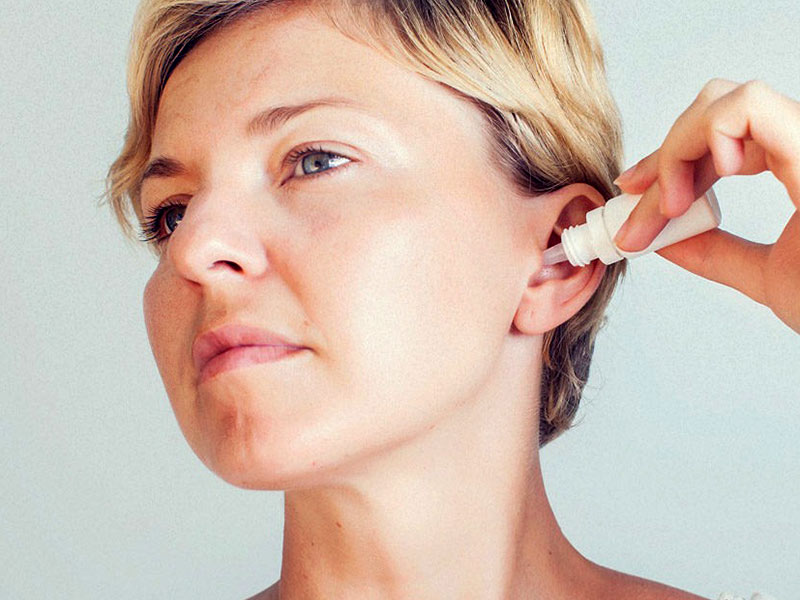Earaches are often dismissed as a small annoyance, but they are painful. Home remedies for ear pain might assist you in controlling the pain. At the same time, you wait for medical attention or antibiotics to take effect.
Ear pain or earaches are most common in youngsters, although they can also affect adults. An earache can affect one or both ears, though it usually affects only one of them. The pain might be subtle, severe, or scorching, and it might be continual or intermittent.
Fever and partial hearing loss are symptoms of an ear infection. Ear infections in young children cause them to be fussy and irritable and tug and rub their ears.
Children typically show additional symptoms in cases of earaches, so they need more attention.
There are many home remedies for ear pain in kids, and a lot of people, especially new mothers and parents, follow them rigorously.
Here is webmd’s theory about why your ear pains
Given below is a list of effective and trusted home remedies for ear pain in kids and adults
1)Sleep posture

Sleeping comfortably without placing pressure on your ear aids earaches. Some sleeping postures worsen ear infection discomfort, while others might help relieve it. When you lie down at night, it becomes more difficult for the air to move through; thus, the tubes cannot drain and may get clogged. As a result, your ear discomfort may be worse at night than it is during the day. Sleeping on one side for extended hours, especially if the pillow is too high, can be painful to the temporomandibular joint.
So, instead of sleeping with the afflicted ear facing down toward the pillow, sleep with it lifted. If necessary, this can aid with ear drainage. Extra pillows can also be used to raise your head when sleeping. This can also aid with the drainage of the ears. Place two or more cushions under your head so that the afflicted ear is higher than the rest of your body. Sleeping on your right side is recommended if your left ear is inflicted with pain as ear discomfort is reduced when there is less pressure in the ears. Though a few inches may not make a significant difference in pressure measurement, it might be useful.
2)Over the counter medicines

If your main symptom is an earache, you should wait a day or two before going to the doctor. Because ear infections/pain can sometimes go away on their own after a few days. But if the discomfort doesn’t go away and you have a fever, you should consult a doctor as soon as possible. The American Academy of Pediatrics (AAP) recommends using over-the-counter (OTC) pain medications such ibuprofen, aspirin, and acetaminophen to manage discomfort associated with acute otitis media, a painful kind of ear infection (AOM).
They’re safe to use with or without antibiotics, but make sure you follow the label’s dose directions.
It’s vital to remember that giving aspirin to newborns and young children is dangerous. This is due to the possibility of Reye’s syndrome, a potentially fatal illness. Before providing over-the-counter medications to a kid under the age of two, the US Food and Drug Administration (FDA) recommends that parents consult with a doctor. In newborns and young children, these medications can have substantial negative effects. It’s also worth noting that the recommended dosage for children is frequently lower than the recommended dosage for adults.
3)Cold and Warm Compress

People frequently use ice packs or warm compresses to ease pain, such as a heating pad or a moist towel. Ear pain can be treated in the same way. A hot or cold compress also aids in blood circulation and eases the pain as well.
Both toddlers and adults can safely use this strategy. An earache can be relieved with the use of a cold pack. Wrap ice in paper towels or use a cold pack that has been frozen and then covered with a light cloth. For 20 minutes, apply this to the ear and the region directly underneath the ear. When it comes to children, parents should never put ice directly on their children’s skin. It is strongly advised that you wrap a few ice cubes in a handkerchief and apply it to the afflicted region.
Alternating heat and cold packs presented optimum pain alleviation for most people. However, most individuals prefer hot compresses because they are calming. However, check the compress before using it since utilizing a hot one might cause skin irritation. Always keep in mind that home remedies for ear pain vary depending on the origin of the problem. So, if home cures aren’t working to relieve the condition, see a doctor right away to find out what’s causing it and how to cure it. To be cautious, check whether you are allergic to any of the home cures before using them.
4)Oils

Earaches can be treated with olive oil, tea tree oil, and ginger oil. Olive oil and many oils as home remedies for ear pain have been used for a long time in households. While placing a few warmed drops of olive oil in the ear is safe and may be reasonably beneficial, it’s still a good idea to see your doctor first, especially if you’re treating a youngster. Allow a teaspoon of olive oil to warm and cool before using. One to two drops of the oil should be placed in the afflicted ear. Check the temperature of the oil before using it since hot oil might cause eardrum burns.
Another oils used as a home remedies for ear pain is tea tree oil. Tea tree oil is an essential oil that has long been used as a natural pain reliever. The oil contains antifungal, antibacterial, antiseptic, and anti-inflammatory qualities, making it one of the most effective home remedies for ear pain. The oil is intended to relieve ear pain and discomfort. The oil may be purchased both online and in physical places. Simply combine a few drops of tea tree oil with a teaspoon of any base oil, such as olive, sesame, or coconut oil, before using. To relieve ear discomfort, thoroughly mix the oil and place one to two drops in each ear.
More info about Tea Tree Oil: 10 Benefits and how to use
Ginger is globally recognized for its anti-inflammatory effects, which can help relieve earache pain. Another helpful home remedies for ear pain is to apply ginger juice or filtered oil that has been warmed with ginger over the outer ear canal. Be cautious not to put it straight into the ear, and apply it slowly and gently.
Although these oils do not have a scientific backup, these oils do not have major side effects. So, it’s safe to use as long as you take care of the oil temperature and application pressure.
5)Garlic

Garlic has long been used as a pain reliever in folk medicine. This spice contains anti-inflammatory qualities that help reduce ear discomfort by reducing inflammation in and around the ear canal and congestion. To eliminate an earache naturally, either consume two to three raw garlic cloves or use crushed Garlic (this is the more preferred method). There are two ways of physical application of Garlic as an earache relief-
a) Cook two or three cloves till brown in two teaspoons mustard or sesame seed oil, then strain. After that, put a drop or two in each ear. This is commonly practiced in Indian households and is religiously done at least twice a month.
b) Warm three garlic cloves and mash them with a touch of salt. Wrap the mixture in a handkerchief and apply to the aching ear.
It’s possible that certain earaches can be avoided. Take advantage of preventative steps and avoid smoking or secondhand smoke exposure. Keep strange things out of your ears and dry them thoroughly after swimming or bathing.
It’s also a good idea to stay away from allergy triggers like dust and pollen.
Although these home remedies for ear pain are helpful, it is preferable to take preventative measures because prevention is better than cure.

























